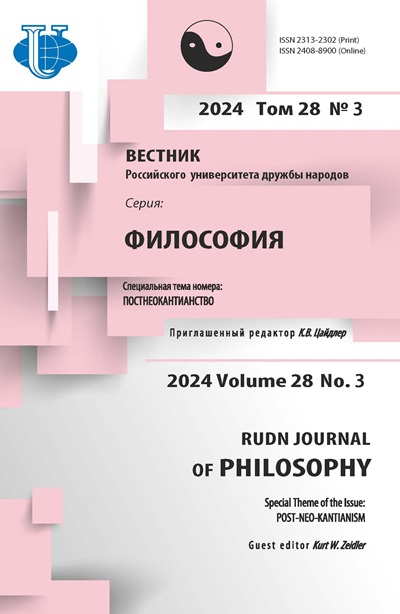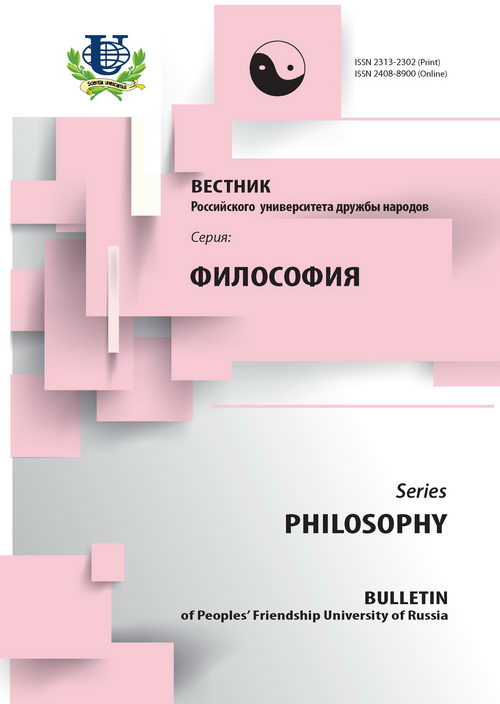Постантропоцентрический антигуманизм против другого гуманизма как гуманизма Другого
- Авторы: Тлостанова М.В.1
-
Учреждения:
- Российская академия народного хозяйства и государственной службы при Президенте Российской Федерации
- Выпуск: № 1 (2015)
- Страницы: 33-48
- Раздел: Статьи
- URL: https://journals.rudn.ru/philosophy/article/view/11520
Цитировать
Полный текст
Аннотация
В статье представлен сравнительный анализ преимущественно западного постантропоцентрического антигуманизма в его основных проявлениях - реактивном, технократически-апологетическом и критическом - и незападного гуманизма как реитерации важности так и неосуществленных гуманистических принципов в отношении лиминальных субъектов модерности, лишившихся права считаться людьми. Автор подробно останавливается на пересечениях и расхождениях между западными теориями аффекта и деколониальной геополитикой и телесной политикой знания, ощущения и бытия, показывая, что многие «открытия» аффективного поворота уже давно были представлены в незападном теоретизировании, хотя и оставались неизвестными или нелегитимными в глазах мейнстримовской науки. Особую остроту эта проблема обрела в рамках дискуссии о человеческом, природном и животном, децентрации человека как вида и стирания и расшатывания казалось бы незыблемых модерных границ и иерархий между человеческим и природным. Во второй части статьи речь идет о дальнейшей проблематизации границы между человеком и животным в рамках так называемого «аутистского взгляда», который может выражаться как в форме научного эксперимента, так и в форме перформанса, которая зачастую оказывается более результативной.
Об авторах
Мадина Владимировна Тлостанова
Российская академия народного хозяйства и государственной службы при Президенте Российской Федерации
Email: mydina@yandex.ru
Кафедра философии
Список литературы
- Maldonado-Torres N. Introduction. Worlds and Knowledges Otherwise, Volume 1, Dossier 3, Fall 2006. URL: http://www.jhfc.duke.edu/wko/dossiers/1.3/1.3introarchive.php.
- Wynter, Sylvia. “Human Being as Noun? or Being Human as Praxis - Towards the Autopoetic Turn/Overturn: A Manifesto,” 2007. URL: http://otl2.wikispaces.com/file/view/The+ Autopoetic+Turn.pdf.
- Braidotti, Rosi. The Posthuman. Malden: Polity Press, 2013.
- Agamben, G. Homo Sacer. Sovereign Power and Bare Life. Trans. by Daniel Heller-Roazen. Stanford: Stanford University Press, 1998.
- Lugones, María. “Toward a Decolonial Feminism,” Hypatia. Special Issue: Feminist Legacies/Feminist Futures, Vol. 25, Issue 4 (2010): 742-759.
- Nishitani, Osamu. “Anthropos and Humanitas: Two Western Concepts of Human Being.” In Translation, Biopolitics, Colonial Difference. Edited by Naoki Sakai and John Solomon. 259-273. Hong Kong: Hong Kong University Press, 2006.
- Mignolo, Walter. “Geopolitics of Sensing and Knowing. On (De)Coloniality, Border Thinking, and Epistemic Disobedience,” EIPCP, 09.2011. URL: http://eipcp.net/transversal/0112/ mignolo/en
- Maldonado-Torres, Nelson. “On the Coloniality of Being,” Cultural Studies Vol. 21, No. 2-3 (2007): 240-270.
- Wynter, Sylvia. “Unsettling the Coloniality of Being/Power/Truth/Freedom: Towards the Human After Man, Its Overrepresentation - An Argument,” The New Centennial Review, 3:3 (2003): 257-337.
- Ferry, Luc, Alain Renault and Franklin Philip. From the Rights of Man to the Republican Idea. Chicago: University of Chicago Press, 1992.
- Tlostanova, Madina and Walter Mignolo. Learning to Unlearn: Decolonial Reflections from Eurasia and the Americas. Columbus: Ohio State University Press, 2012.
- Shinkle, Eugenie. “Uneasy Bodies: Affect, Embodied Perception and Contemporary Fashion Photography,” In Carnal Aesthetics. Transgressive Imagery and Feminist Politics. Edited by Bettina Papenburg and Martha Zarzycka, 73-88. London, N.Y.: I.B. Tauris 2013.
- Wynter, Sylvia. ‘Towards the Sociogenic Principle: Fanon, The Puzzle of Conscious Experience, of “Identity” and What it’s Like to be “Black”’ In National Identity and Socio-Political Change: Latin America Between Marginalisation and Integration. Edited by Mercedes Duran-Cogan and Antonio Gomez-Moriana, 30-66. New York: Garland, 2000. Minneapolis: University of Minnesota Press, 1999.
- Gordon, Lewis. “Problematic People and Epistemic Decolonization: Toward the Postcolonial in Africana Political Thought,” In Postcolonialism and Political Theory. Edited by Nalini Persram, 121-142. N.Y.: Lexington Books, 2007.
- Fanon, Franz. Black Skin, White Masks. N.Y.: Grove Press, 1967.
- Du Bois, William B. The Souls of Black Folk. A.C. McClurg & Co., Chicago, 1903.
- Henry, Padget. Caliban’s Reason. Introducing Afro-Caribbean Philosophy. N.Y.: Routledge, 2001.
- Moraga, Cherrry and Gloria Anzaldua, eds. This Bridge Called my Back. Writings by Radical Women of Color N.Y.: Kitchen Table. Women of Color Press, 1981.
- Anzaldúa, Gloria. Borderlands/ La Frontera. The New Mestiza. San Francisco: Aunt Lute Books, 1989.
- Gordon, Lewis. “What does it mean to be a problem”, In Existentia Africana. Understanding Africana Existential Thought, 62-95. N.Y.& Lodon: Routledge, 2000.
- Albán Achinte, Adolfo. “Artistas Indígenas y Afrocolombianos: Entre las Memorias y las Cosmovisiones. Estéticas de la Re-Existencia”. In Arte y Estética en la Encrucijada Descolonial, 83-112. Buenos Aires: Del Siglo, 2009.
- Mignolo, Walter. ”I am where I Think: Remapping the Order of Knowing”, In The Creolization of Theory. Edited by Francoise Lionnet and Shu-mei Shih, 159-192, Durham and London: Duke University Press, 2011.
- Dussel, Enrique. The Underside of Modernity: Apel, Ricoeur, Rorty, Taylor, and the Philosophy of Liberation. Atlantic Highlands: Humanity Books, 1996.
- Koivunen, Anu. “Force of affects, weight of histories in Love is a Treasure”, In Carnal Aesthetics. Transgressive Imagery and Feminist Politics. Edited by Bettina Papenburg and Martha Zarzycka, 89-101. London, N.Y.: I.B. Tauris, 2013.
- Masumi, Brian. Parables for the Virtual: Movement, Affect, Sensation. Durham and London: Duke University Press, 2002.
- Gallese, Vittorio. “The manifold nature of interpersonal relations: the quest for a common mechanism.” Philosophical Transactions: Biological Sciences, 358-431, 29 March (2003): 517-528.
- Karkov, Nikolay. “From Humanism to Post-humanism and Back: Notes on the Geopolitics of Knowledge”, Личность. Культура. Общество. Т. 15, Вып. 3-4 (2013): 52-70.
- Shiva, Vandana. Earth Democracy. Justice, Sustainability and Peace. N.Y., Boston: South End Press, 2005.
- Manning, Erin. “Another regard”, In Carnal Aesthetics. Transgressive Imagery and Feminist Politics. edited by Bettina Papenburg, Martha Zarzycka, 55-72. London, N.Y.: I.B. Tauris, 2013.
- Mignolo, Walter. The Darker Side of the Renaissance. Ann Arbor: The University of Michigan Press, 1995.
- Lugones, Maria. “Playfulness, “World”-traveling and Loving Perception”, In: Pilgrimages/Peregrinajes. Theorizing Coalition against Multiple Oppression. 77-100. Lanham, Boulder, New York, Oxford: Rowman and Littlefield Publishers Inc., 2003.
















